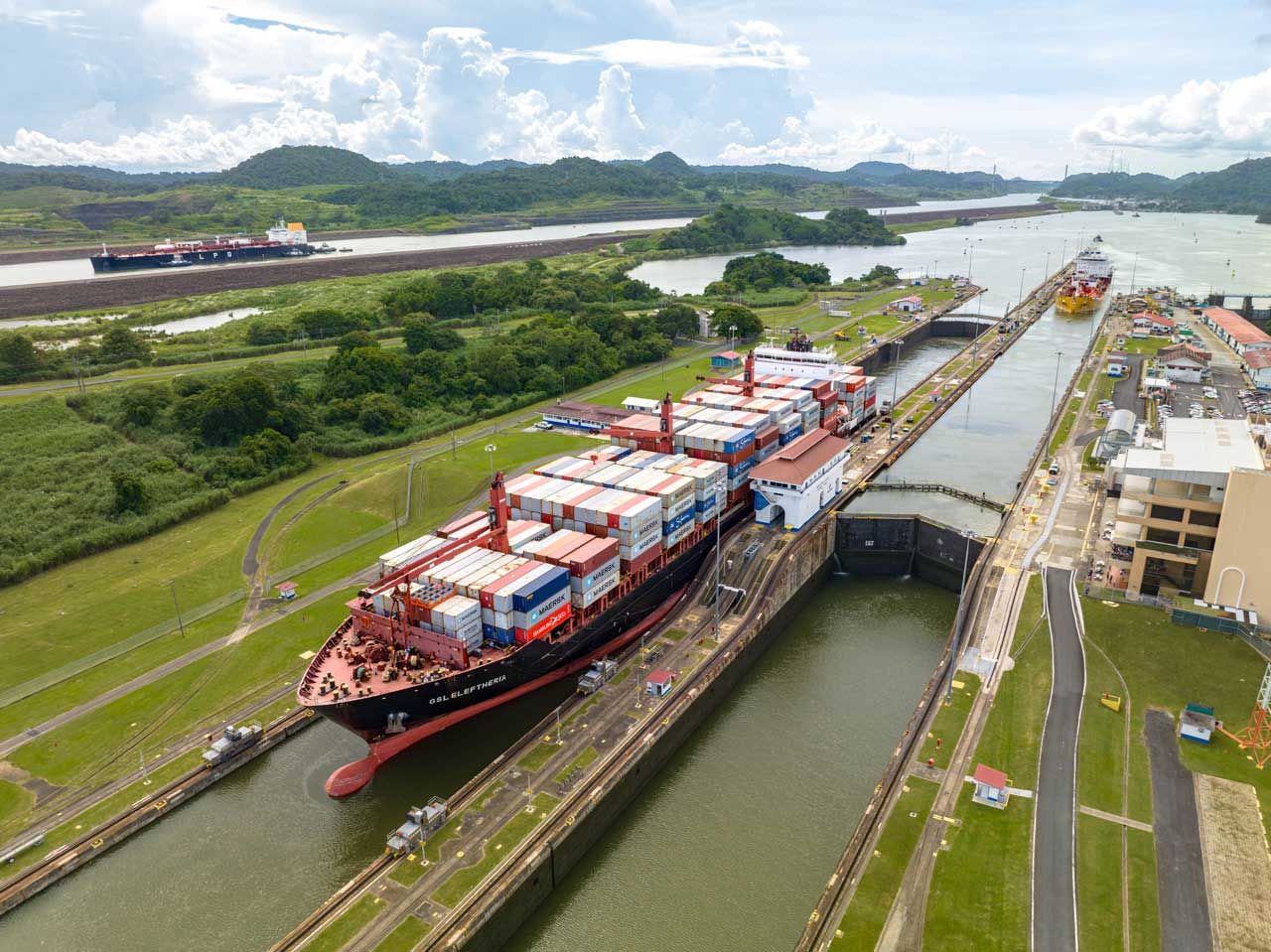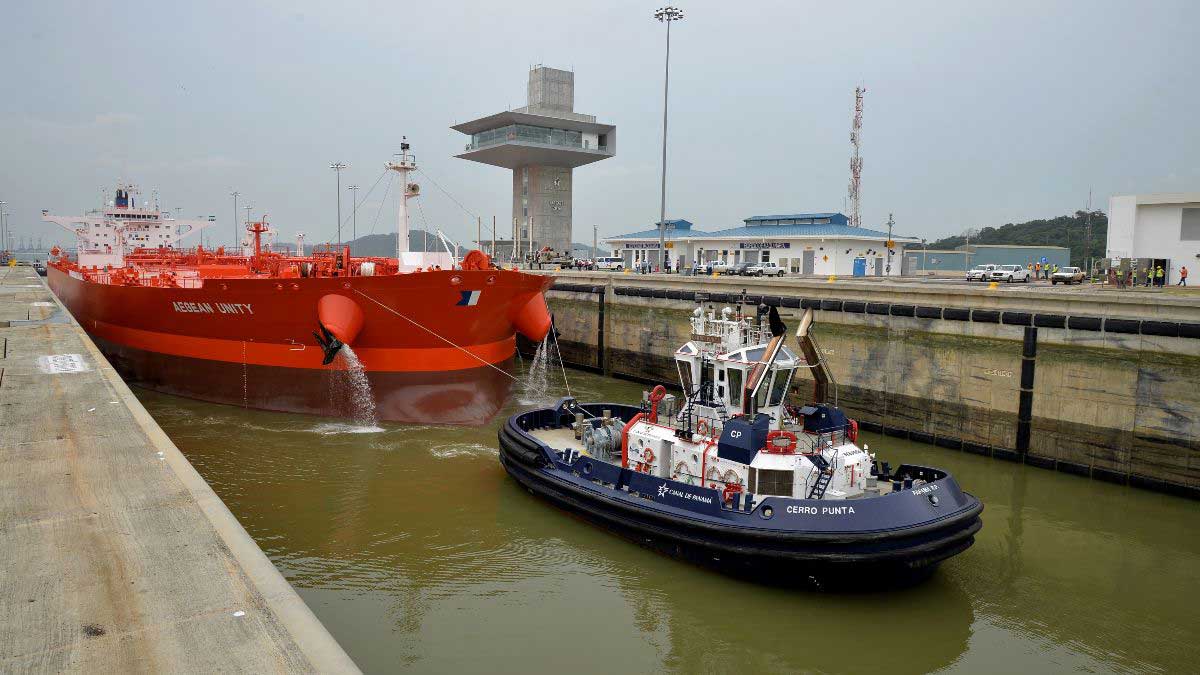ACP WELCOMES COMMENTS IN UNIQUE PUBLIC, TRANSPARENT PROCESS
PANAMA CITY, Panama, March 14, 2007 – The Panama Canal Authority (ACP) today held a public hearing in the Ascanio Arosemena Auditorium in Balboa, Panama, on its proposal to restructure the Panama Canal’s pricing system and certain regulations. Fourteen representatives from shipping and government participated in this opportunity to express their views.
“Today, Panama Canal customers and members of the maritime industry were welcomed to participate in a unique, transparent and open process,” said ACP Administrator/CEO Alberto Alemán Zubieta. “This process, where customers participate as we set new rates, is rare in the business world. We will seriously study the comments made today, as well as the written submissions.”
Throughout the consultation period (February 2, 2007 – March 12, 2007), the proposal was made available to all interested parties. The ACP received a total of 21 written submissions, in both English and Spanish, from individuals and groups.
Prior to the proposal’s announcement, informal consultations were conducted by the ACP with customers and the maritime industry to listen and receive their inputs.
As the world becomes more interconnected – barriers dropping, tariffs reduced – the value of the Panama Canal and its role in the global supply chain grow. Shippers moving goods from the U.S. Gulf Coast to Asia can save up to 10 voyage days via the Panama Canal, and vessels traveling from the West Coast of South America to the U.S. East Coast shave an estimated eight to 16 voyage days compared to alternative routes. Given the cost increases in shipbuilding, fuel and vessel operations, the route through the Panama Canal has significantly increased its value to its users.
“With globalization, the Canal is an increasingly more important artery in the world’s supply chain. Our toll proposal reflects an effort toward charging customers the market price of the Canal’s service today. It represents an effort to move to a charge that represents the real value of the service and route. To be clear, this is different from how the Canal operated under the U.S. administration. We are not a utility. We are a business that provides a service to its customers, invests in its future, returns dividends to its shareholders and assumes risk when it makes major enhancements. We appreciate the responses we have received during this transparent process and look forward to continued service to the industry and to the Panamanian people,” Alemán Zubieta concluded.
The ACP’s Board of Directors will review the comments received during the official consultation period and will submit its recommendation to the Cabinet Council of the Republic of Panama for approval in the coming weeks.
The official proposal can be accessed, in English and Spanish, at www.pancanal.com. Significant elements include:
-
Maximum Displacement Draft vs. Arrival Draft: The ACP is proposing a change for vessels charged based on their displacement to simplify and streamline the process. The Canal proposes that the charge is based upon the maximum displacement draft instead of the arrival draft to assess tolls according to the specified tonnage rate.
-
Administrative Changes: Some administrative changes have been made, but these changes will have no economic impact whatsoever. These revisions provide necessary linguistic and grammatical clarifications to the document or reinsert missing words to processes and procedures.
-
Passenger Vessels: Regarding passenger vessels, the ACP is proposing an assessment of tolls based on maximum passenger capacity. In general, under this change, large vessels will be charged tolls on a per berth basis, and smaller ships will continue under the Canal tonnage tolls system. These changes are largely due to suggestions from industry representatives and evidence another example of the ACP listening to the industry.
-
Tolls: The adjustments and implementation dates of proposed tolls depend on each segment that transits the Canal: container vessels, passenger vessels, general cargo, refrigerated cargo, dry bulk, tankers and vehicle carriers. The proposal calls for an average increase of 10 percent per year over three years. Of note, tolls for non-container segments have not increased in the last four years.
About the Panama Canal Authority (ACP)
The ACP is the autonomous agency of the Government of Panama in charge of managing, operating and maintaining the Panama Canal. The operation of the ACP is based on its organic law and the regulations approved by its Board of Directors. For more information, please refer to the Panama Canal Authority’s Web site: www.pancanal.com.
The Authority’s responsibility to the Panamanian people is paramount. The Canal belongs to the people and benefits from the Canal should accrue to as many Panamanians as possible. The Authority will plan its future so that it will continually contribute to the economic development and welfare of the citizens of Panama.




